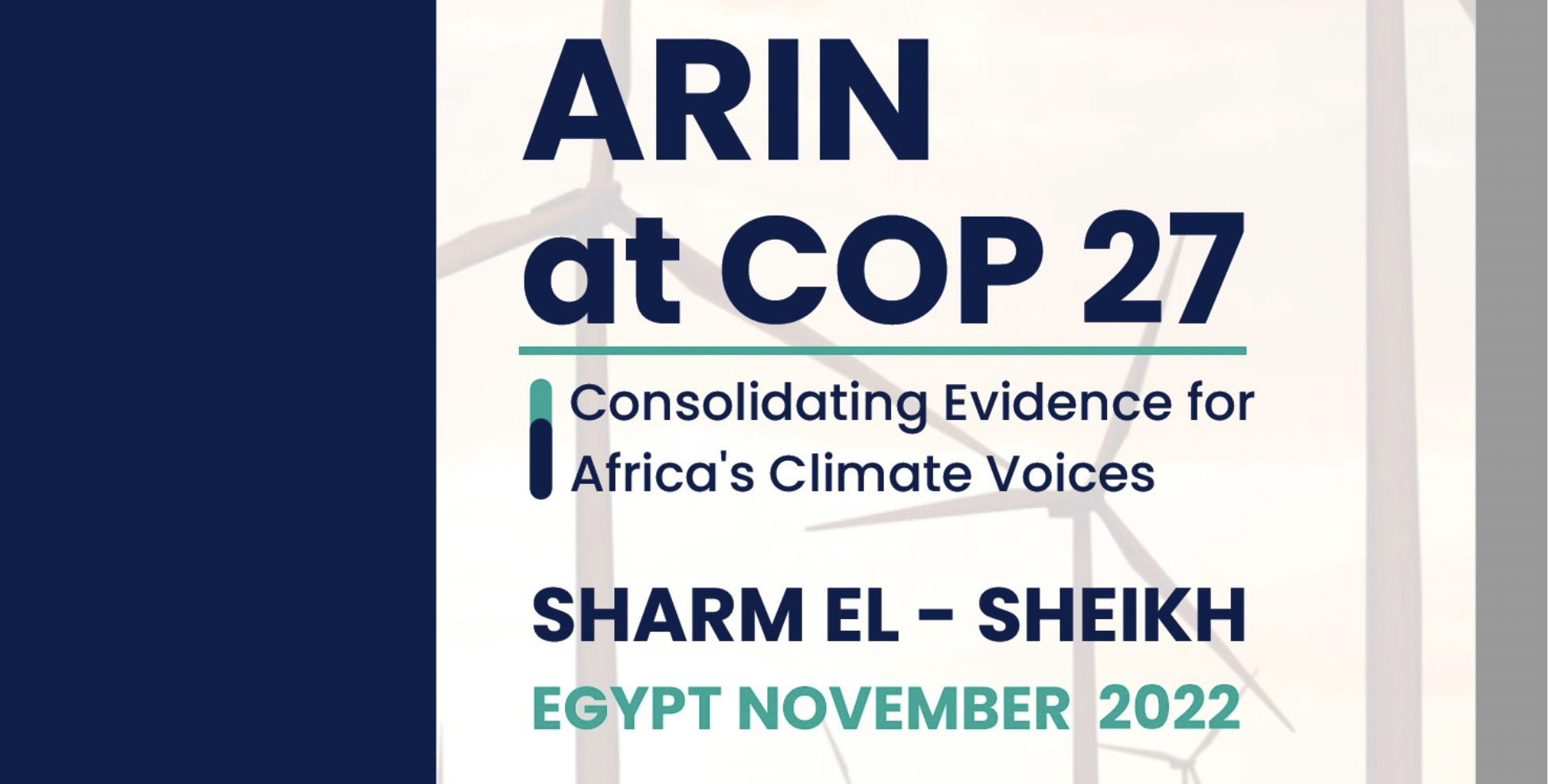The 27th UN Climate Change Conference of the Parties (COP27) takes place amidst unprecedented global challenges, some of which have been aggravated by COVID-19, and the war in Ukraine. For African countries, the COP27 promises progress with the renewed Nationally Determined Contributions (NDCs), and the delivery of finance, that is estimated at USD 140 billion annually and may escalate to USD 300 billion by 2030.
The financial commitment by the developed countries may not adequately facilitate the implementation of the NDCs and other climate actions hence it is imperative for countries to carry analysis of the challenges and opportunities available in realizing their adaptation priorities. This analysis is also critical in addressing wider concerns around climate justice in Africa such as the exclusion of women and youth in the climate discourse. Women are disproportionately harmed by climate change yet they are able to co-design solutions that are essential in transforming food systems and boosting resilience. It is therefore vital that their voices are heard in the decision making.
The youth hold immense potential in the climate discourse and a clear understanding of climate plans and the financing structure can accelerate and accomplish specified climate actions and targets. Some of the opportunities that promise solutions to adaptation gaps in the developing countries include locally led adaptation that is cheaper and easily accessible to the local communities and partnerships for the NDC financing, that engages relevant stakeholders at the national, regional and international levels.
Ultimately, the need for research remains key in ascertaining the right adaptation measure depending on the ecological zone. Research has revealed that opportunities abound in mitigating climate change and improving the lives of the vulnerable in the society such as the e cooking that is now being piloted in many parts of Kenya. The paradox is that there is a significant number of scientific studies that have been carried around adaptation but have not been shared for policy and action.
The Africa Research and Impact network (ARIN) has created the much-needed space, to enable researchers and policy makers across 36 African countries to promote research excellence and dialogue on best research and impact practices. It provides a peer review platform where best research and impact practices from different African contexts are shared, profiled and leveraged to inform transformative policy actions. The climax of ARIN programs is an annual conference. The ARIN conference this year will be held from 7th – 9th December 2022. The international conference seeks to interrogate pathways through which just transition processes in Africa could rebuild more resilient local communities. The conference will focus on three major thematic areas which are
i.) Envisioning a just transition for Africa
ii.) Building just and resilient community systems
iii.) Decolonizing policy research toward resilient communities
COP 27 Outreach

